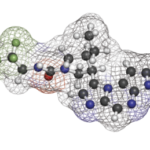The long-term safety assessments from upadacitinib’s phase 3 RA program will help better characterize rare safety events with the drug, write the authors.
According to the authors, one limitation of the study is that the duration of the placebo-controlled period was 26 weeks, with rescue treatment administered at week 14. “[Because] rescue treatment was provided starting at week 14 for ethical reasons, not all patients remained on their randomized treatment assignment for the entire six months,” they write.
A Closer Look
Because upadacitinib is newly available—the third jakinib approved for RA—it’s important for rheumatologists to reflect on the results of studies like this one.
The study’s evidence that upadacitinib is as effective as adalimumab to treat RA is notable, says study author Roy Fleischmann, MD, MACR, co-medical director, Metroplex Clinical Research Center, and clinical professor of medicine, UT Southwestern Medical Center, Dallas. “This is the third agent in the [jakinib] class that has been shown to be at least as effective—if not more so—[as] a bDMARD,” he says.
The similar adverse events seen in both the upadacitinib and adalimumab patients was an interesting result. “This riskbenefit profile raises the question, [because jakinibs] are oral, whether they should be used prior to a bDMARD in a methotrexate incomplete responder,” Dr. Fleischmann says.
Because of the concern with VTEs occurring in jakinib-treated patients, Elena Schiopu, MD, associate professor, Division of Rheumatology, Michigan Medicine, Ann Arbor, is more diligent about monitoring for additional risk factors associated with VTEs, such as obesity, estrogen use, history of malignancies and immobility. However, the major risk factors are prior VTEs and use of a COX2 inhibitor. Like tofacitinib and baricitinib, upadacitinib has a boxed warning about VTEs on its label.
Vanessa Caceres is a medical writer in Bradenton, Fla.
Reference
- Fleischmann R, Pangan AL, Song I-H, et al. Upadacitinib vs. placebo or adalimumab in patients with rheumatoid arthritis and an inadequate response to methotrexate: Results of a phase 3, double-blind, randomized controlled trial. Arthritis Rheumatol. 2019 Nov;71(11): 1788–1800. Epub 2019 Aug 28.



